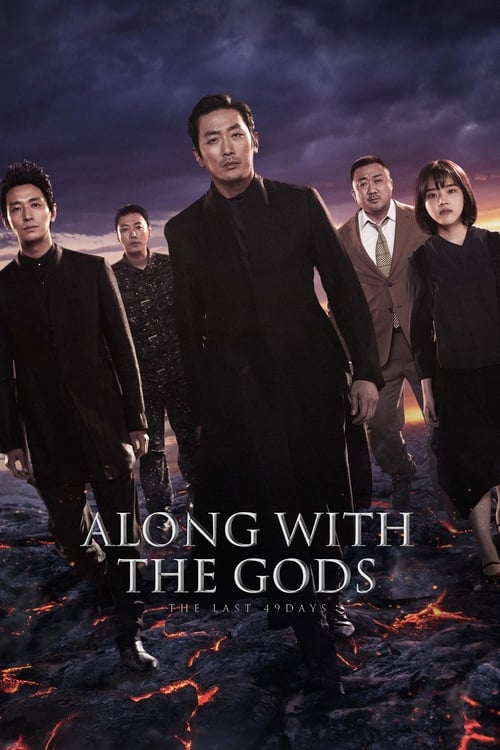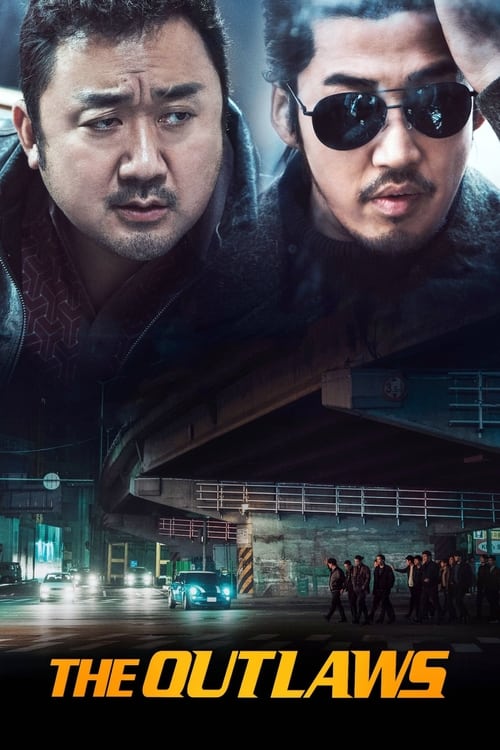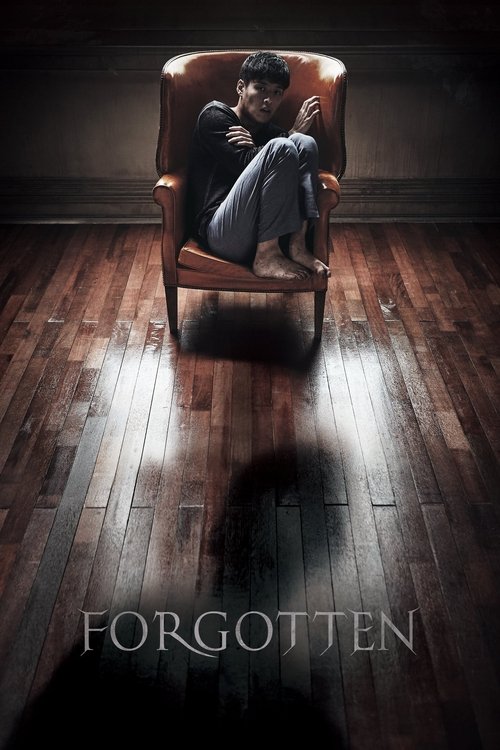
Ask Your Own Question
What is the plot?
In the cramped semi-basement apartment of the Kim family in Seoul, the film Parasite begins with a quiet but palpable tension. The father, Ki-taek, sits calmly folding pizza boxes as a street fumigation sprays pesticide outside their window. His wife, Chung-sook, coughs, worried about the toxic cloud seeping into their fragile home. Their children, Ki-woo and Ki-jung, struggle with the lack of internet access, forced to piggyback on a neighbor's Wi-Fi. The family's resourcefulness is immediately clear--they manipulate their pizza delivery manager to avoid pay cuts, a small but telling survival tactic in their impoverished world. This fumigation scene, with its insecticide mist, metaphorically sets the film's tone: a story about infestation, survival, and the invisible parasites within society.
Ki-woo's life takes a turn when his friend Min offers him a chance to tutor the daughter of the wealthy Park family. Armed with forged documents and a fake university degree, Ki-woo infiltrates the Parks' modern, architecturally stunning mansion. The house, with its spacious rooms, large windows, and pristine design, starkly contrasts with the Kim family's basement apartment. It symbolizes the vast social chasm between the two families.
Ki-woo's sister, Ki-jung, soon follows, posing as an art therapist for the Parks' young son, Da-song. The Kim parents, Ki-taek and Chung-sook, also find their way into the household--Ki-taek becomes the driver after the original is framed for sexual harassment by Ki-jung, who cunningly plants her underwear in the driver's car. Chung-sook replaces the longtime housekeeper, Moon-gwang, after the Kims manipulate the Parks into believing Moon-gwang has tuberculosis, exploiting her allergy to peaches as false evidence. The entire Kim family is now embedded within the Park household, each playing a role in a meticulously orchestrated con.
The Kims enjoy their new luxurious lives, but their deception is fragile. One night, while the Parks are away on a camping trip, the Kim family throws a drunken party in the mansion, reveling in their temporary escape from poverty. Ki-woo confesses his love for Da-hye, the Park daughter, a tender moment amid the chaos of their double lives. Suddenly, Moon-gwang returns, ringing the doorbell and claiming she has left something in the basement. The Kims hide, but Chung-sook lets Moon-gwang in, leading to a shocking discovery: a secret underground bunker concealed beneath the house.
Moon-gwang opens the hidden door, revealing her husband, Geun-sae, who has been living in the bunker for four years, hiding from loan sharks. The cramped, dark space beneath the opulent mansion is a stark symbol of the hidden underclass, physically buried beneath wealth and privilege. When Chung-sook threatens to call the police, the Kims' carefully constructed facade begins to crumble. A violent struggle erupts, with Moon-gwang recording incriminating footage of the Kims. The family manages to subdue Moon-gwang and Geun-sae, forcing them back into the bunker. But their victory is short-lived.
The Parks' camping trip is cut short by a sudden flood, forcing them to return home unexpectedly. The Kims scramble to hide, but Moon-gwang makes a desperate attempt to escape the bunker and reveal the truth. Chung-sook kicks her down the stairs, concussing and killing her in a brutal, visceral moment. The Kims are trapped in the house, hiding under the coffee table as the Parks arrive. Ki-taek overhears Mr. Park complaining about his "funny smell," a humiliating moment that deepens his simmering resentment. Eventually, the Kims escape, only to find their basement apartment flooded with sewage water, a cruel reminder that their social status has sunk even lower.
The tension escalates as the Parks prepare for Da-song's birthday party, to be held in the garden of their mansion. The Kims are summoned to work the event, their precarious position more dangerous than ever. Ki-woo, determined to end the nightmare, descends into the bunker with the scholar's rock--a gift symbolizing hope and wealth--to kill Geun-sae. But Geun-sae bludgeons Ki-woo unconscious with the rock, a brutal reversal of fortune. Emerging from the bunker, Geun-sae stabs Ki-jung in the chest with a kitchen knife in front of the horrified party guests. Da-song, witnessing the horror, has a seizure, collapsing in fear at the "ghost" he sees.
Mr. Park orders Ki-taek to drive Da-song to the hospital, but Ki-taek, overwhelmed by rage and humiliation, snaps. He stabs Mr. Park repeatedly with Geun-sae's knife, killing him in a sudden, violent outburst. Ki-taek then flees the scene, disappearing into the shadows as chaos erupts. Chung-sook fights Geun-sae, ultimately killing him with a barbecue skewer after a fierce struggle. Ki-taek tends to his dying daughter, Ki-jung, who succumbs to her wounds. The once tight-knit Kim family is shattered by violence and loss.
Weeks later, Ki-woo awakens from brain surgery, recovering from the assault. He and Chung-sook are convicted of fraud and placed on probation, while Ki-taek remains in hiding in the bunker beneath the Park house. Ki-woo spies on the mansion, now owned by a foreign family, and notices a faint Morse code light flashing from the bunker--a secret communication from his father. In a poignant moment, Ki-woo writes a letter, vowing to work hard, earn enough money, and one day buy the house to free Ki-taek from his underground prison. This ending, filled with tragic hope, underscores the cyclical nature of poverty and social struggle, leaving the audience with a haunting reflection on class and survival.
Throughout Parasite, the visual contrasts between the cramped, dark basement and the airy, sunlit mansion emphasize the deep social divide. The scholar's rock, initially a symbol of aspiration, becomes a weapon of desperation. The film's tension builds steadily, each revelation and confrontation peeling back layers of deception until the explosive climax. The deaths of Moon-gwang, Ki-jung, Mr. Park, and Geun-sae mark the tragic cost of the Kim family's parasitic infiltration, while Ki-taek's flight into hiding leaves the story open-ended, a stark commentary on the inescapable grip of social inequality.
What is the ending?
In the ending of "Parasite," the climax unfolds during a birthday party for the wealthy Park family. Tensions rise as the Kim family's deception unravels, leading to a violent confrontation. Ki-taek, the father of the Kim family, kills Mr. Park in a moment of rage. The film concludes with Ki-taek going into hiding in the secret bunker beneath the Park's house, while his family faces dire consequences.
Now, let's delve into the ending in a detailed, chronological narrative.
As the film approaches its climax, the scene shifts to the Park family's lavish birthday party for their son, Da-song. The atmosphere is festive, filled with laughter and joy, contrasting sharply with the underlying tension that has been building throughout the film. The Kim family, who have infiltrated the Park household under false pretenses, are present, each playing their roles as the hired help.
During the party, the mood shifts dramatically when the former housekeeper, Moon-gwang, unexpectedly arrives. She reveals the existence of a hidden bunker in the Park's home, where her husband has been living in secret. This revelation sends shockwaves through the Kim family, as they realize their carefully constructed lives are on the verge of collapse.
In a frantic attempt to maintain control, the Kims confront Moon-gwang, leading to a chaotic struggle. The party guests are oblivious to the turmoil unfolding just beneath their feet. The tension escalates when Moon-gwang's husband, who has been living in the bunker, emerges, and a violent confrontation ensues. The chaos spills over into the party, where the guests are horrified to witness the violence.
In the midst of this turmoil, Ki-taek, the patriarch of the Kim family, is overwhelmed by a surge of emotions. He is confronted by Mr. Park, who is more concerned about the mess and the potential scandal than the violence that has erupted. In a moment of rage and desperation, Ki-taek stabs Mr. Park, killing him. This act of violence marks a turning point for Ki-taek, who has been pushed to the brink by the class disparity and the humiliation he has endured.
Following the murder, Ki-taek goes into hiding in the very bunker that has been the source of so much turmoil. The film closes with a poignant scene where Ki-taek's son, Ki-woo, dreams of saving his father by buying the house. He envisions a future where he can reunite with Ki-taek, but the reality is starkly different. The final shot reveals Ki-taek's fate as he remains trapped in the bunker, symbolizing the inescapable cycle of poverty and the harsh realities of class struggle.
The fates of the main characters are sealed in this tragic conclusion. Ki-taek is left in hiding, a prisoner of his circumstances. Ki-woo and Ki-jung, his children, are left to grapple with the consequences of their actions, while the wealthy Park family is irrevocably shattered by the violence that has erupted in their home. The film ends on a haunting note, leaving the audience to reflect on the deep divides that separate the characters and the societal commentary woven throughout the narrative.
Is there a post-credit scene?
In the movie "Parasite," there is no post-credit scene. The film concludes with a powerful and haunting ending that leaves a lasting impact on the audience. After the climactic events unfold, the story wraps up without any additional scenes during or after the credits. The final moments focus on Ki-woo's desperate hope to reunite with his father, who is trapped in the basement of the wealthy Park family's home, highlighting the film's themes of class struggle and the desire for a better life. The absence of a post-credit scene reinforces the film's intense emotional weight and the unresolved tensions that linger in the narrative.
What is the significance of the scholar's rock in Parasite?
The scholar's rock symbolizes wealth and the aspirations of the Kim family. Ki-woo receives it as a gift from a family friend, and it represents the hope for a better future and the desire to rise above their impoverished circumstances. Throughout the film, it serves as a physical manifestation of their dreams and the burdens that come with them.
How does Ki-taek's character evolve throughout the film?
Ki-taek, the father of the Kim family, starts as a desperate man struggling to provide for his family. As he becomes more entrenched in the lives of the wealthy Park family, he grows increasingly resentful and cunning. His internal conflict culminates in a moment of violence, revealing his deep-seated frustrations and the lengths he will go to protect his family, ultimately leading to a tragic and irreversible decision.
What role does the basement play in the story?
The basement serves as a hidden world beneath the Park family's opulent home, representing the stark contrast between the wealthy and the impoverished. It is where the former housekeeper's husband, Geun-sae, lives in secret, embodying the theme of hidden struggles. The discovery of the basement by the Kim family marks a turning point in the narrative, exposing the dark underbelly of the seemingly perfect life of the Parks and leading to the film's climax.
How does the relationship between the Kim family and the Park family develop?
Initially, the Kim family infiltrates the Park household under false pretenses, with each member taking on roles that allow them to exploit the Parks' naivety. As they become more integrated into the Parks' lives, the Kims experience a mix of admiration and contempt for their employers. This relationship becomes increasingly complex, revealing class tensions and ultimately leading to a violent confrontation that shatters the facade of harmony.
What is the significance of the birthday party scene?
The birthday party scene is pivotal as it showcases the stark differences between the two families' lifestyles. The Park family's extravagant celebration contrasts sharply with the Kim family's struggles. It is during this event that tensions boil over, leading to a chaotic and violent climax. The scene encapsulates the themes of class disparity and the consequences of deception, as the Kims' carefully constructed lives unravel in front of the unsuspecting Parks.
Is this family friendly?
"Parasite," directed by Bong Joon-ho, is not considered family-friendly due to its mature themes and content. Here are some potentially objectionable or upsetting aspects that may affect children or sensitive viewers:
-
Violence: The film contains scenes of physical violence, including a shocking climax that involves a brutal confrontation.
-
Class Struggle: The narrative explores themes of poverty and wealth disparity, which may be distressing for younger viewers to comprehend fully.
-
Strong Language: There is frequent use of profanity throughout the film, which may not be suitable for children.
-
Sexual Content: There are suggestive scenes and discussions of sexual relationships that may be inappropriate for younger audiences.
-
Substance Abuse: Characters are shown engaging in drinking and smoking, which could be concerning for sensitive viewers.
-
Emotional Distress: The film delves into themes of desperation, deceit, and moral ambiguity, which may evoke strong emotional reactions.
-
Death: The film addresses mortality and features scenes that involve death, which could be upsetting for some viewers.
Overall, "Parasite" is a complex and intense film that deals with heavy subject matter, making it more suitable for mature audiences.



























































